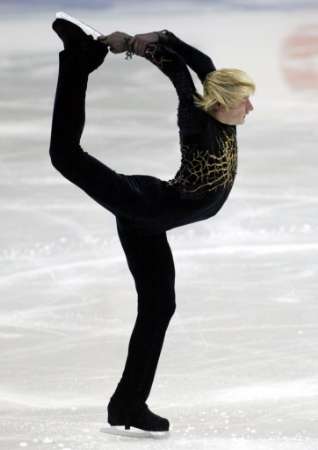There have only been a couple of sports I’ve been interested in enough to try to get to one or more of its pinnacle showcases. The obvious one would be baseball, where, after a childhood of playing the game maybe 300 days a year for five or so years, I’ve managed to make it to a couple of world series games, one all-star game, and a handful of play-off contests.
A little less predictable sport for me, I’d wager, is figure skating. My own life experience on ice skates consists of around one-half hour, relatively little of which was actually spent on my feet. But the combination of athleticism and artistry in the best skating can be breath-taking to watch, even if my experience of viewing a quad toe loop jump never carries with it the same muscle memory that I get watching an outfielder throw straight through to home in order to catch a runner.
In 1992,
This year watching Coatesville’s Johnny Weir skate himself out of medal contention in the Olympics was hard to do, because you could see him fighting himself all the way. With Evgeny Plushenko, easily the best male skater now going, so far ahead, Weir committed the same blunder that has cost Michelle Kwan more than one Olympic medal – he skated “safely” which then meant that he skated poorly as well. Trying only not to make mistakes, he made more than ever.
There is a lesson in this for poetry. When I say, as I have more than once, that there are more good poets now writing than ever before in our history, I don’t necessarily mean that more great poems a la ”The Waste Land” or “Howl” (or whatever your iconic preference might be) are being written at this moment, tho that’s not inconceivable. What I mean is this: there are more poets who are not making Johnny Weir’s mistake – they are putting everything they have into the poem, not at all holding back. That to me is the test of a poet, regardless of which school they aspire to. Do they give everything to the poem? If the answer is yes, then I don’t see how you or I could ever ask anything more of them. Let’s just marvel at the effort.






